Gasoline Radio. We strive to present how valuable is Ukrainian culture
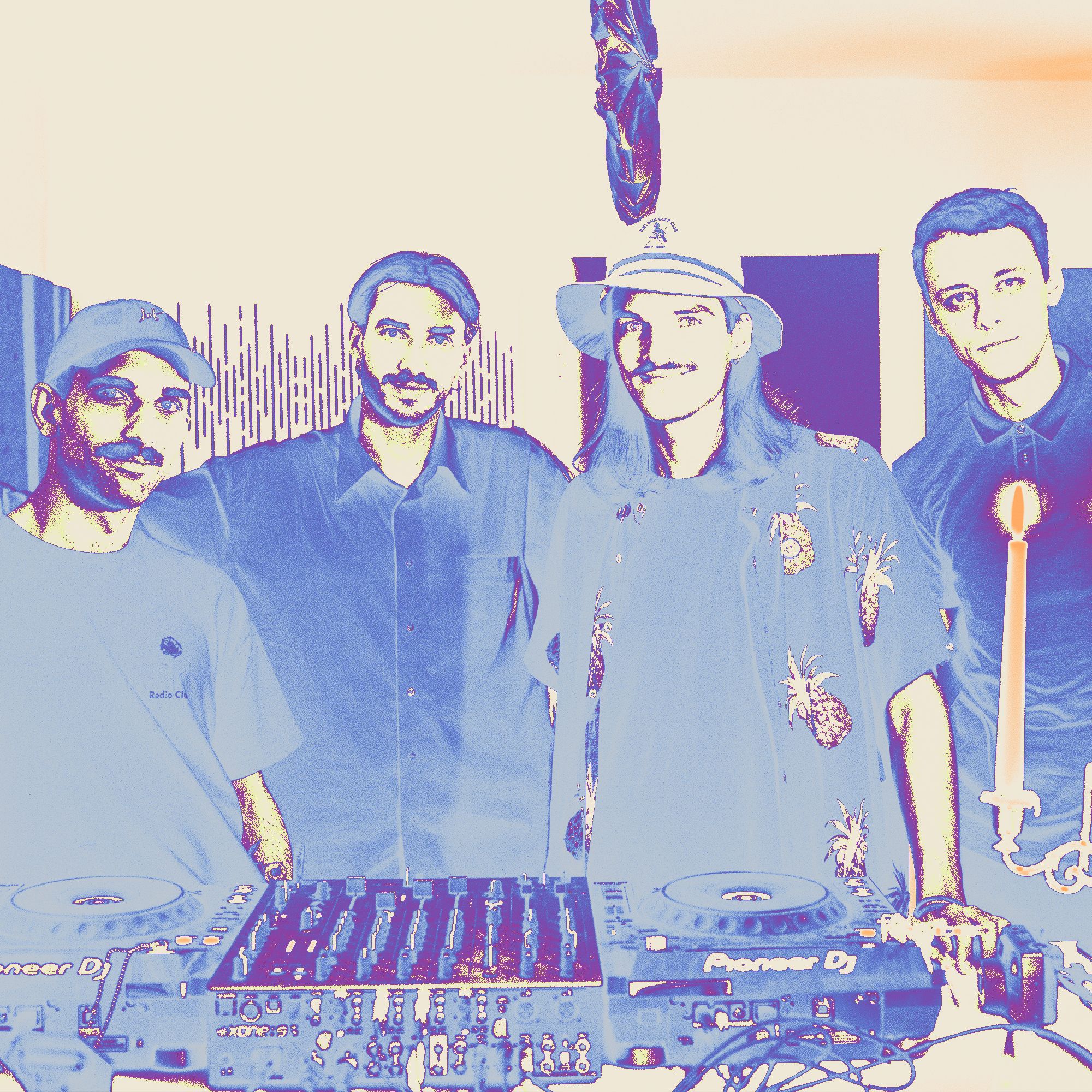
Live or mixtape? Vinyl or cassette? Oleksii Makarenko, the co-founder of Gasoline Radio, told us what kind of sound he associates Kyiv with. In this interview, we have covered his thoughts about the modern Kyiv scene and the project's mission, his path in music, and his service in the Ukrainian Armed Forces.
We talked in the middle of October over Zoom; at that time, Oleksii was undergoing training at a military training area. Now, he is in the Donetsk region and plans to pursue another professional training.
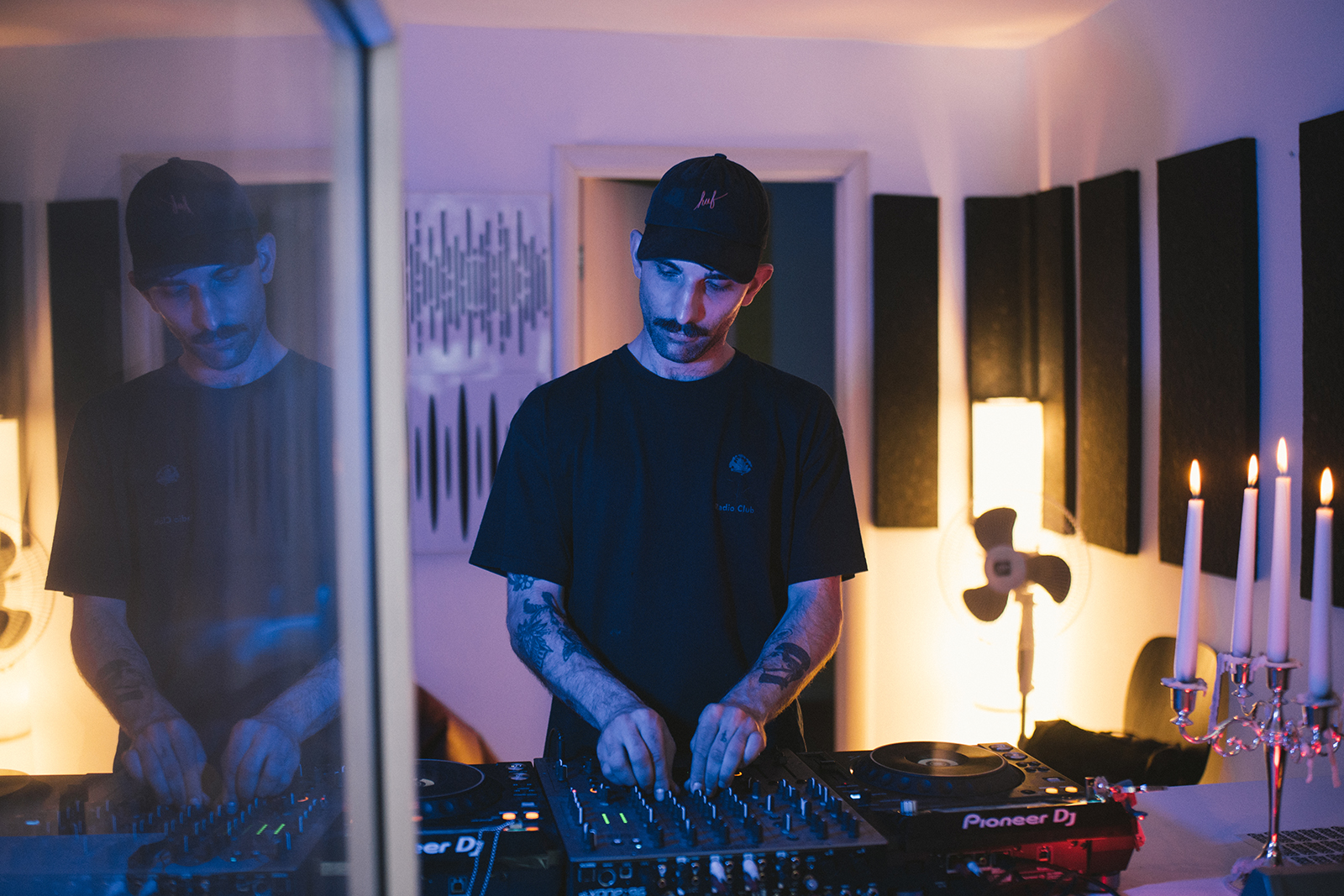
01. Tell us about your path to music
My grandmother had the greatest influence on the formation and development of my perception of music. When I was a child, she gave me an old Baltic Radiola (a radio with a vinyl record player) and 300 records, those she liked and those collected by my mother. So, I spent most of my time exploring different kinds of music and listening to shortwave radio. You could say that this gave rise to the idea of founding Gasoline.
When I was 16, I played in a garage punk band, and we rocked out at quite a few gigs, but I think my future as a musician was bleak. And then, I went back to examining different music styles. As I began to realize the immensity of this world, I couldn't stop at only one thing.
02. How did Gasoline Radio come about?
In the summer of 2021, I wrapped up my work on Katacult magazine, and Valentyn Bobylev, the Kultura Zvuku club and DJ school owner approached me with the idea of starting a new media project. Given my experience with music media and the desire to give more space to young artists, I offered to change the format and focus on forming a radio community. This is where the preparations for the start of the project took off.
We managed to shoot a documentary at the Iskra festival, set a direction, and announced the launch on February 22, 2022. In just two days, our lives and future plans changed irrevocably. Three months of volunteer work and the tangible need for a new space for local artists brought us back to work on the radio. So, on May 18, 2022, we held our first broadcast.
At first, I worked on the project independently, and the team was formed gradually with the understanding of the tasks and the emergence of opportunities. We worked in a small team. Bohdan Zaiets, a talented Kharkiv-based producer, team member, and teacher at Kultura Zvuku, was responsible for the technical part. Sasha Ushenko was in charge of social media and communications. Taras Bryl, known to the Kyiv music community as Clasps, was the creative copywriter. Nastia Slutska, the curator of the Kultura Zvuku school in Kyiv, was responsible for some of the content, and designer Anton Pcholkin was responsible for the visuals. Initially, Anton Skrypiy helped with the website development and technical issues.
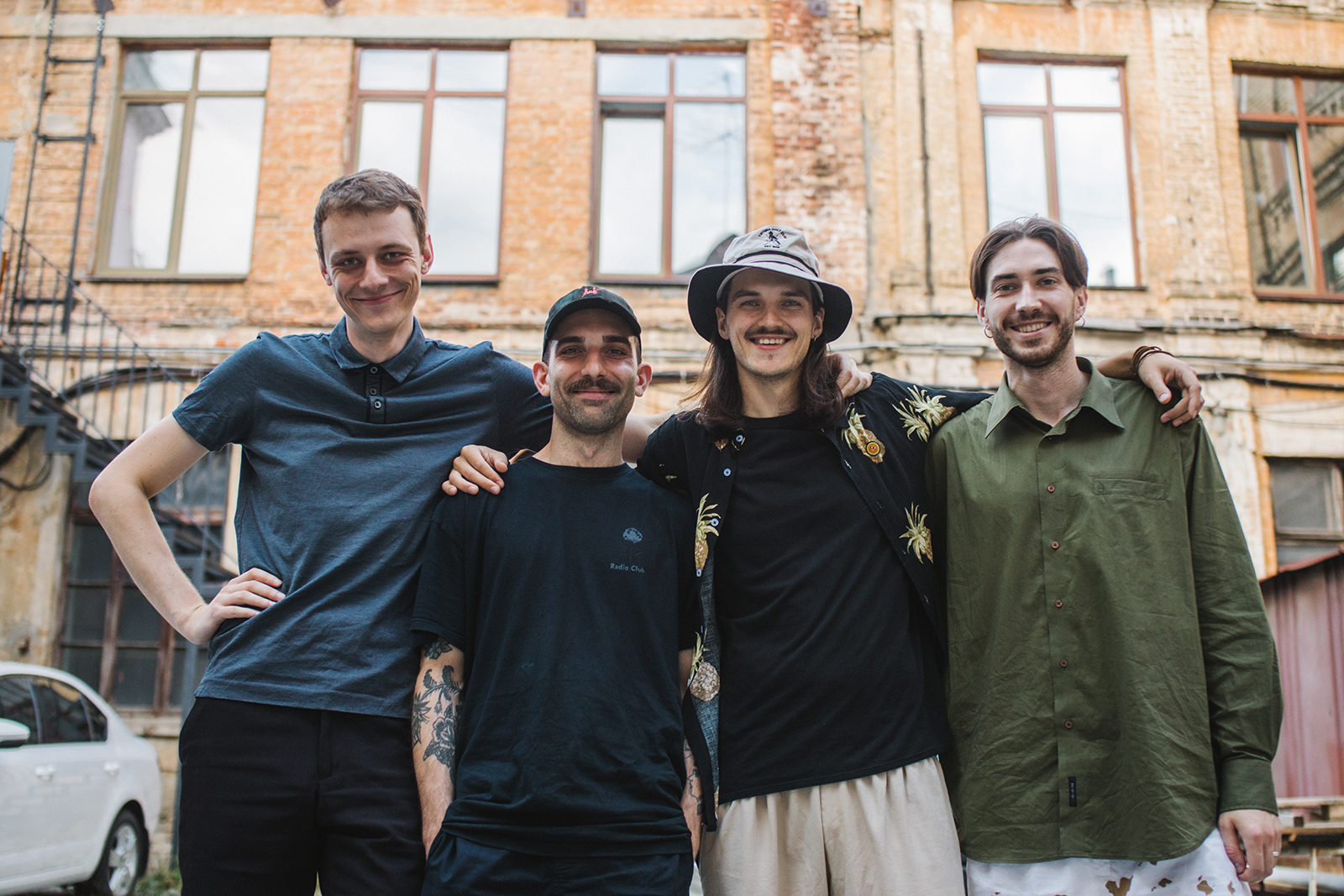
03. Why radio format?
I saw several problems with the Ukrainian scene. The first is the lack of venues available for young musicians. Most clubs and concert venues focus on well-known names and artists who have already established themselves. Many movements and musicians remained in the shadows because they focused on music deemed unpopular from a commercial and trend perspective.
Secondly, Gasoline Radio is about more than just current music. It is important for us to form a valuable image of Ukrainian culture: to study our heritage, analyze it, and thoroughly understand it. We do not take more or less well-known names from the 1960s and 1980s but dive into this topic in detail and globally.
I immediately realized that radio would not be enough for me, and I wanted to move in other directions. One of the first things I did was the "Spadok" [heritage, from Ukrainian] project. In early 2023, we won our first grant and went on an expedition to the Carpathians to study local traditions and music. We took a lot of equipment to collect field recordings and let our residents work with them. Based on this, we created a compilation that was later released under our label. In this way, we want to build a bridge between generations, between the musicians who work with music that existed 100 years ago and those who focus on present-day music. Therefore, our plans for the future include working with archives. But for now, we are focused on our label.
We also collaborated on a series of events with Don't Take Fake, our close friends. The first was a joint event in the courtyard with crows near the Kashtan coffee shop at the end of June 2022. We invited several Ukrainian musicians who are friends of ours.
The second joint event, "Osmyslennia," [comprehension, from Ukrainian] was dedicated to the 31st anniversary of Ukraine's independence and was held at the Lavra Gallery in Kyiv. We also partnered with the Dovzhenko Center, where they screened Ukrainian films from their archives.
In October 2022, we held the third Associated Circles live marathon, in which we teamed up with the friendly Amsterdam-based formation Ї.collective to hold a joint event as part of the ADE Hangover festival.
There were five electronic live shows from Kyiv and Amsterdam. Ukrainian artists played at the Dovzhenko Center's Museum of Cinema, among rare film equipment, in the light of archival footage of avant-garde Ukrainian cinema from the 1920s and 1930s. During each broadcast, we raised funds for various volunteer organizations. In spring 2023, together with DTF, we organized a series of performances for the MOT. Now, we are preparing a project with the Kyiv Biennale on the sounds of cities. It will involve 5 artists, 5 photographers, and 5 cities. We will be announcing more details later.
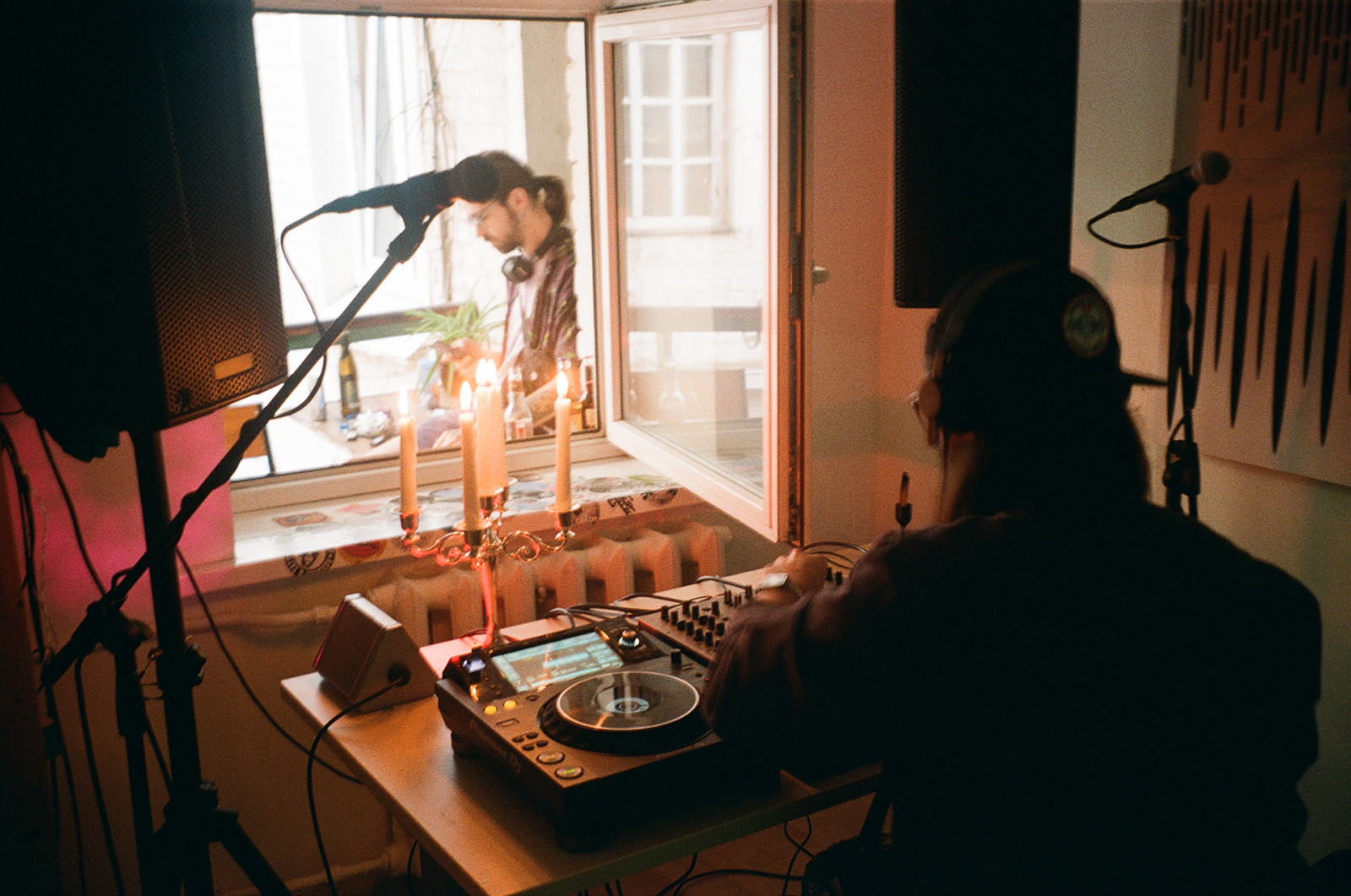
04. What is the mission of Gasoline Radio?
Our mission is to study and shape Ukraine's cultural image and create a healthy environment for musicians without prejudice. Our value is to give aspiring artists an opportunity and space for development without being frowned upon by peers and to support and help them grow.
We want to contribute to the abolition of the inferiority complex. We still see, albeit less, how Ukrainians tend to look to the West rather than return to their Ukrainian roots. And that, for some, Ukrainian is still of little importance.
We want to study the archives to show Ukrainian music and culture wealth. We can and will discover things that we can be proud of and through which it will be easier to identify ourselves.
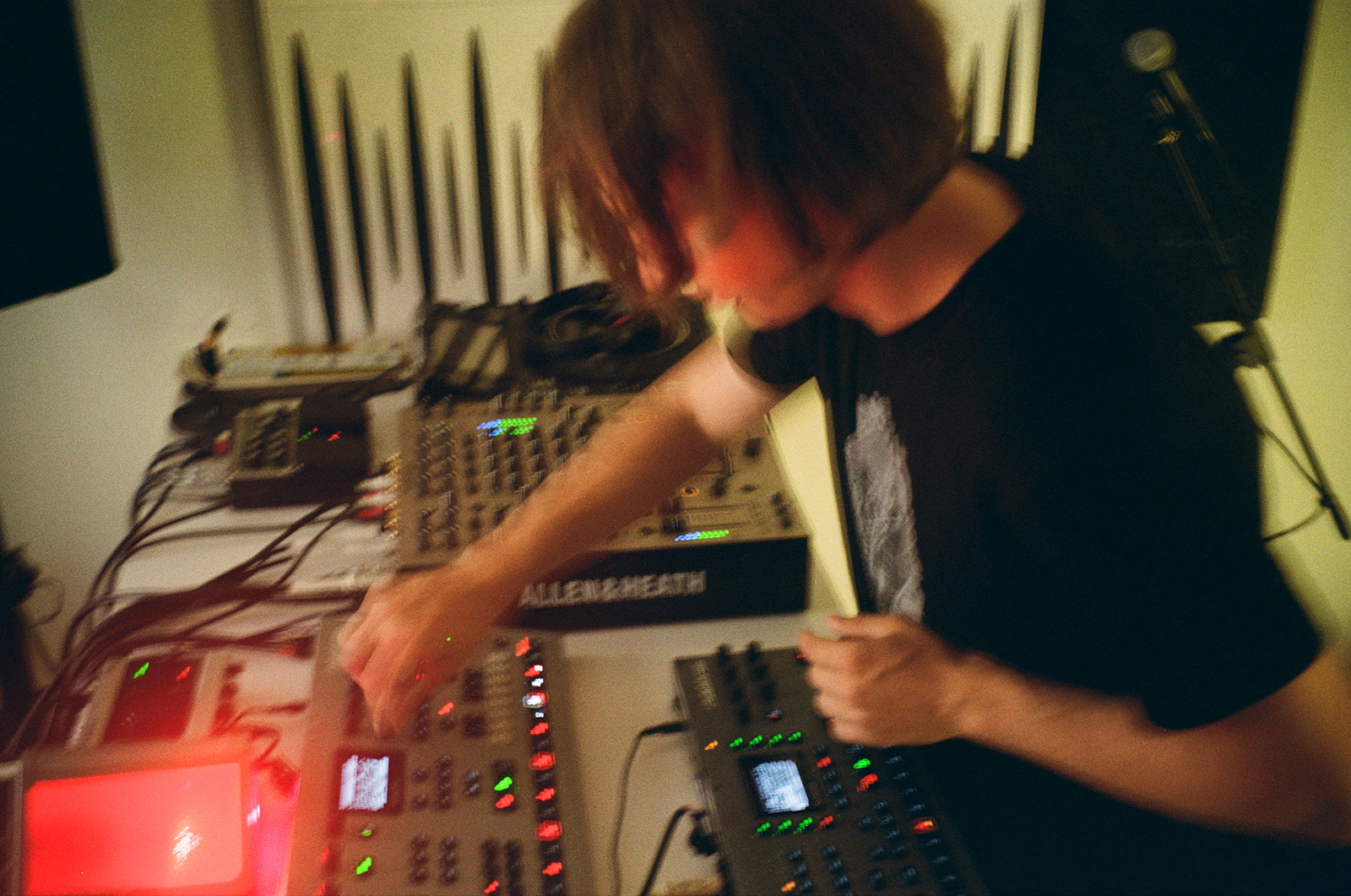
05. Has Gasoline Radio already formed its community?
Yes, it does exist. And this community cannot be described in one word. It is diverse – and that is the beauty of it. We have gathered more than 150 residents, both in Ukraine and abroad. Although there is a lack of resources and the project is somewhat on hold, there is the feeling of constant interaction and the importance of their voices and material.
For now, each resident is doing something different: organizing parties, creating labels, or doing what they like. Some of them have radio shows on other stations, including European ones, as we are in contact with many of them. Someone makes dance music, plays noise music, or organizes experimental music evenings.
06. Does the international radio community offer cooperation?
We've always been open to interacting with different radio communities worldwide, so we've tried to hold mutual talks and do joint projects.
And yes, we constantly receive requests from European radio stations for showcases, talkbacks, etc. At the beginning of the full-scale Russian invasion, there were particularly many people who wanted to support Ukrainian initiatives. For example, Radio Kapitał is a super friendly radio station from Poland. We did joint shows dedicated to the war and exchanged radio shows and resident mixes. Melodic Distraction from Liverpool, now closed, was involved in the Eurovision Song Contest and had a month dedicated to Ukraine. We prepared special broadcasts for them in various formats. There were also a lot of requests from the media, from the smallest to the Guardian. Everyone is interested in how culture exists and is promoted during the war.
07. How do you plan to develop the label? Do you have any ideas?
Of course, I have a bunch of ideas. Yet, the resources are currently scarce, and my involvement is minimal. We plan to concentrate on selected releases: we want to be emotionally invested in them, approach them deliberately, and not rush them. These are our main principles for releasing music.
When the label launch was announced, we received enough releases for several years in advance — that if we release one every month. This is understandable as most of our residents write music. For now, we plan to make our next release on cassette - by a young Odesa musician, essentialmilks. This is ambient with an Odesa soul: very interesting music.
I hope we can continue the "Spadok" project. We filmed only in the Hutsul region, but we want to travel all over Ukraine, record music from different regions, and re-release it. This will be a new direction for the label. We also plan to create a sub-label for purely Ukrainian music: traditional, folk, and archival.
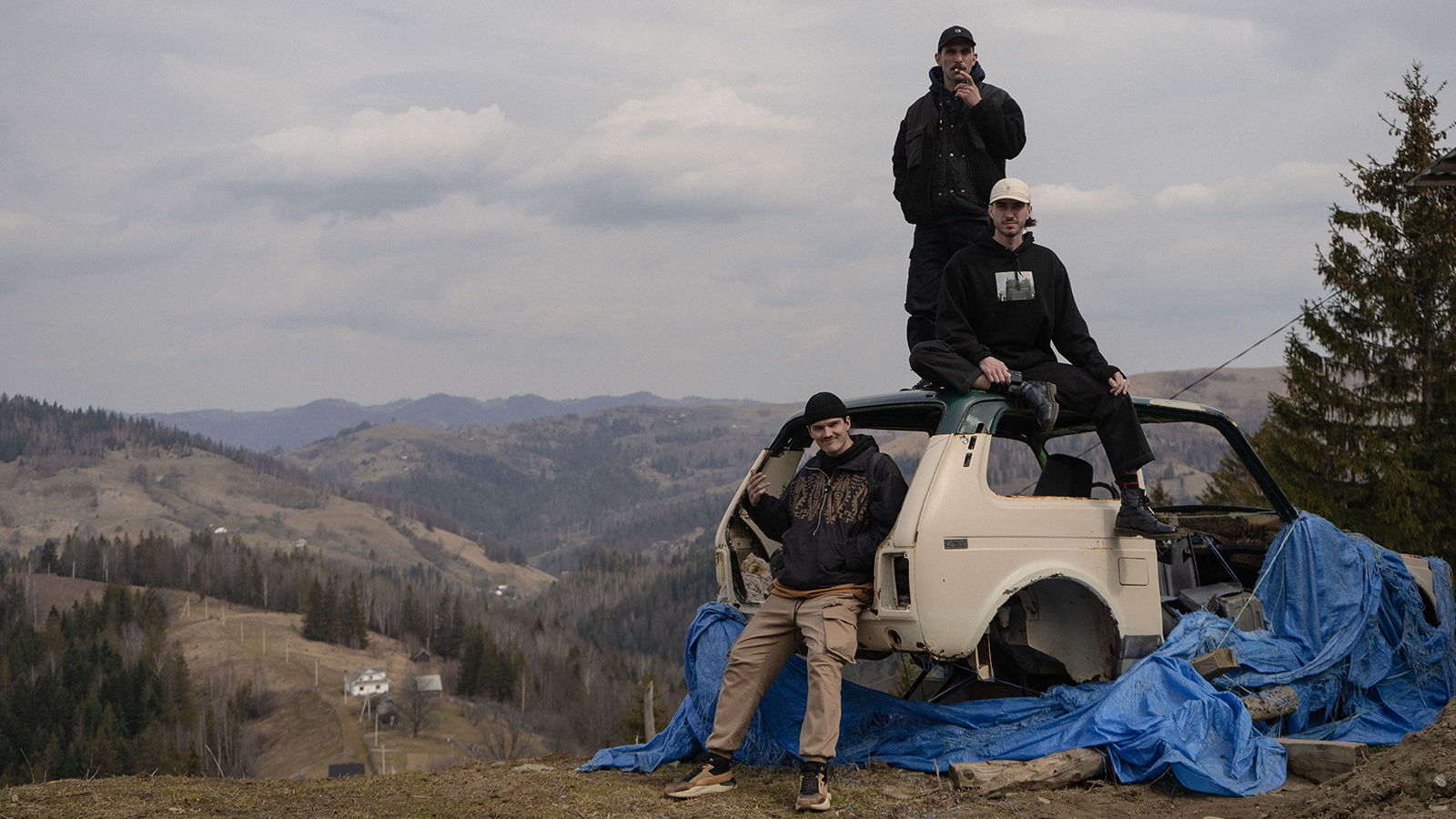
08. What will be the next region for the expedition?
We thought about it and are most interested in the region of Bessarabia. It's a multinational region where folks live in a close, small community and preserve their culture, traditions, and rituals. I am interested in showing it to people.
I want to go to Slobozhanshchyna to introduce the Donetsk region. I want to go to Polissya, the cradle of Ukrainian culture, a region particularly rich in many different phenomena. Alas, many things die with its people: there is no one in the villages now to pass on the traditions.
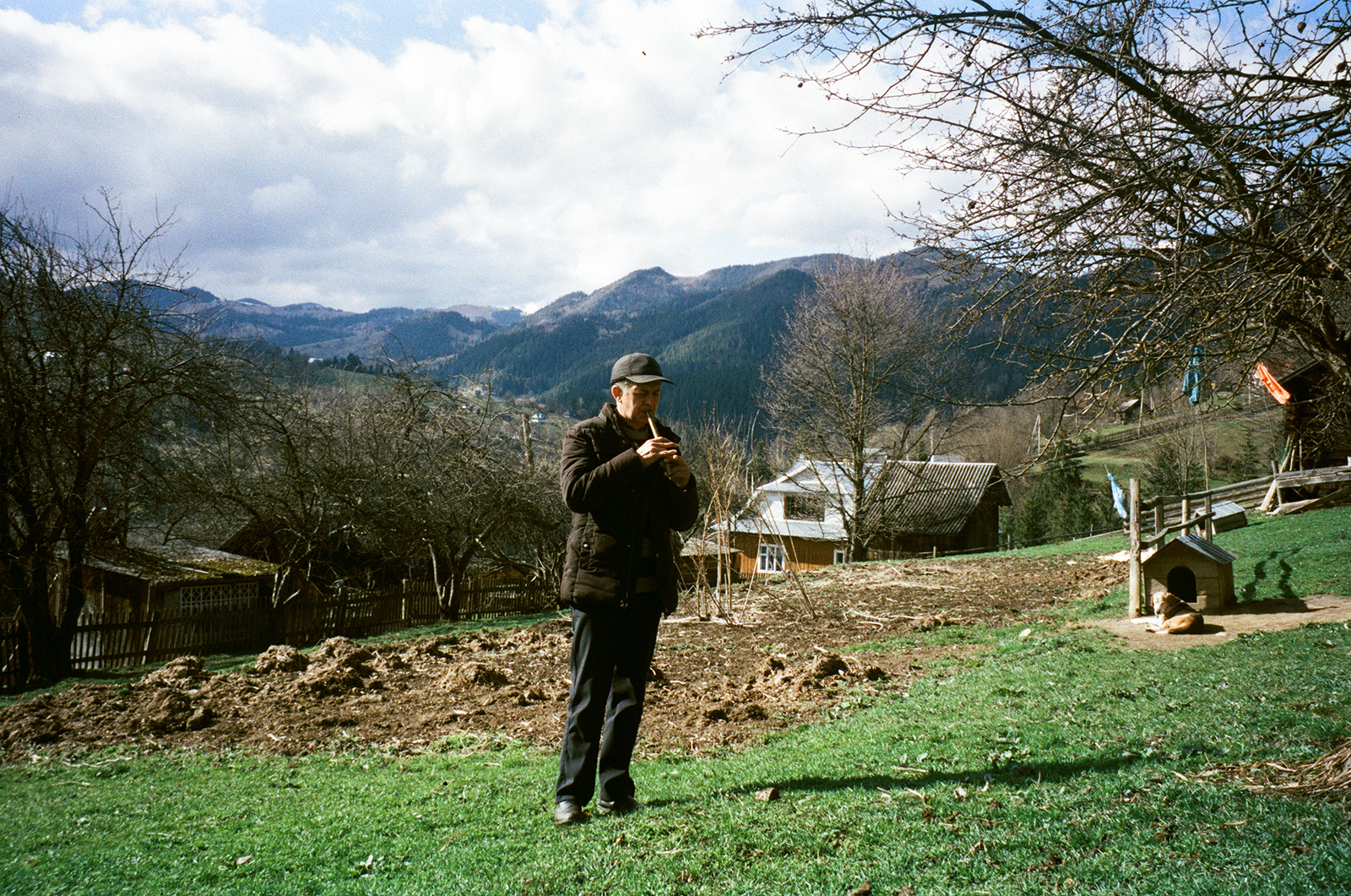
09. What about the independent Kyiv scene? Has it changed much?
The main change in the Ukrainian scene occurred when many artists left to pursue their careers in Europe. This made room for new names and talents. Yet, there is still a lack of venues where they can broadcast their ideas to a broader audience. Yes, many venues have become more open to diversity. However, there is still a lack of alternative concert stages and clubs in Kyiv that would work with different styles and formats.
So, in overall terms, there is development, but I don't want it to stop at trends. Everyone seems to be trying to focus on music that is already working and following the beaten path. I think forming and developing a new image of culture is important. I want Kyiv to be multicultural and develop in different directions, not only in electronic music but also in live music. I want to create places with individuality, with a different vision and thinking. Some promising bars in Kyiv are capable of broadcasting interesting content.
10. Which of the current Ukrainian musicians do you consider interesting and promising?
I would like to mention the residents and friends of our radio, artists who are close to us in spirit. I believe they will have a bright future with their vision and approach to what they do.
These are Hanna Svirska, mires, Heskbo, Whaler, undo despot, ummsbiaus
11. You are currently in the Ukrainian Armed Forces. Tell us a bit about your service.
I am undergoing basic military training. I was performing in Uzhhorod, and from there, I planned to go to Frankivsk to return to the Carpathians and show the movie "Spadok" to its heroes.
I was drafted on the way, so my entry into the army took place a little earlier than I expected.
12. How is your mood after the change of environment?
It varies greatly. I realize that I can't go back to the life I used to live. However, I believe that these skills are necessary for everyone right now. It is unclear how long the war will last. Not even mentioning the state of things in the world, given how unresolved conflicts flare up again. So, unfortunately, we all need to be able to hold a weapon and know tactical medicine.
However, I would like military enlistment offices to take a more thoughtful approach to recruiting people.
To be honest, I feel a little strange. Training is such a transitional stage. You get used to some things, yet some are still somewhat unusual, but you must accept them. I'm getting used to being here, trying to balance my life before and now, trying not to stop.
13. How does music help you at this stage?
During the first week, it was tough to return to music. I even had a kind of flashback: I felt the same way I did at the beginning of the full-scale invasion when I couldn't listen to it at all. I didn't feel any sense in it; this was disturbing. In the army, music doesn't have the same meaning: you must tune in to other things and values.
But I'm coming back to it again, and I'm listening to a lot of stuff now. The most recent is a recording of traditional Georgian music, a set by Mutant Radio from Tbilisi. I listen to my friends who send me their demos and tracks to understand what's going on with the Ukrainian scene. I don't have much personal time and space here, but I try to listen to something at night. I return to familiar records and slowly discover something new. Mostly, it's radio shows that help me calm down and collect my thoughts, such as Gasoline Guest Mix: E/tape 24/02/2023, The Mixtape 47: Albanian isopolyphonic singing.
14. What’s happening with Gasoline Radio now while you’re serving?
The project has been on hold since the beginning of summer 2023, as we ran out of funding. We have been raising funds to keep the radio alive, but we are still a non-commercial platform. In August, the only people who remained on the team were my friend and partner, with whom I lived, Sashko Ushenko, and I. This is our PR and SMM person. The rest of us went on to different projects. Taras Bryl, known as Clasps, also went to serve - he is now in the Armed Forces.
All broadcasts are on pause, but we continue with special projects. I join remotely. We are currently doing the Gasoline Selectors series - we invite selectors from around the world. We plan to do releases and projects that require less effort than before. Radio is not just a hobby. It requires 24/7 involvement, and you simply have to live for radio. I understand people who don't get paid for it, just as their enthusiasm has its limits.
15. Have you told your new colleagues about Gasoline Radio?
Yes, it's impossible not to communicate with people here because we all live in the same training ground. It's the only way to escape the daily routine and training. But I don't think they'll pay much attention to it: here, people pay attention to simpler things. Someone may watch a movie, and someone will eventually listen to records.
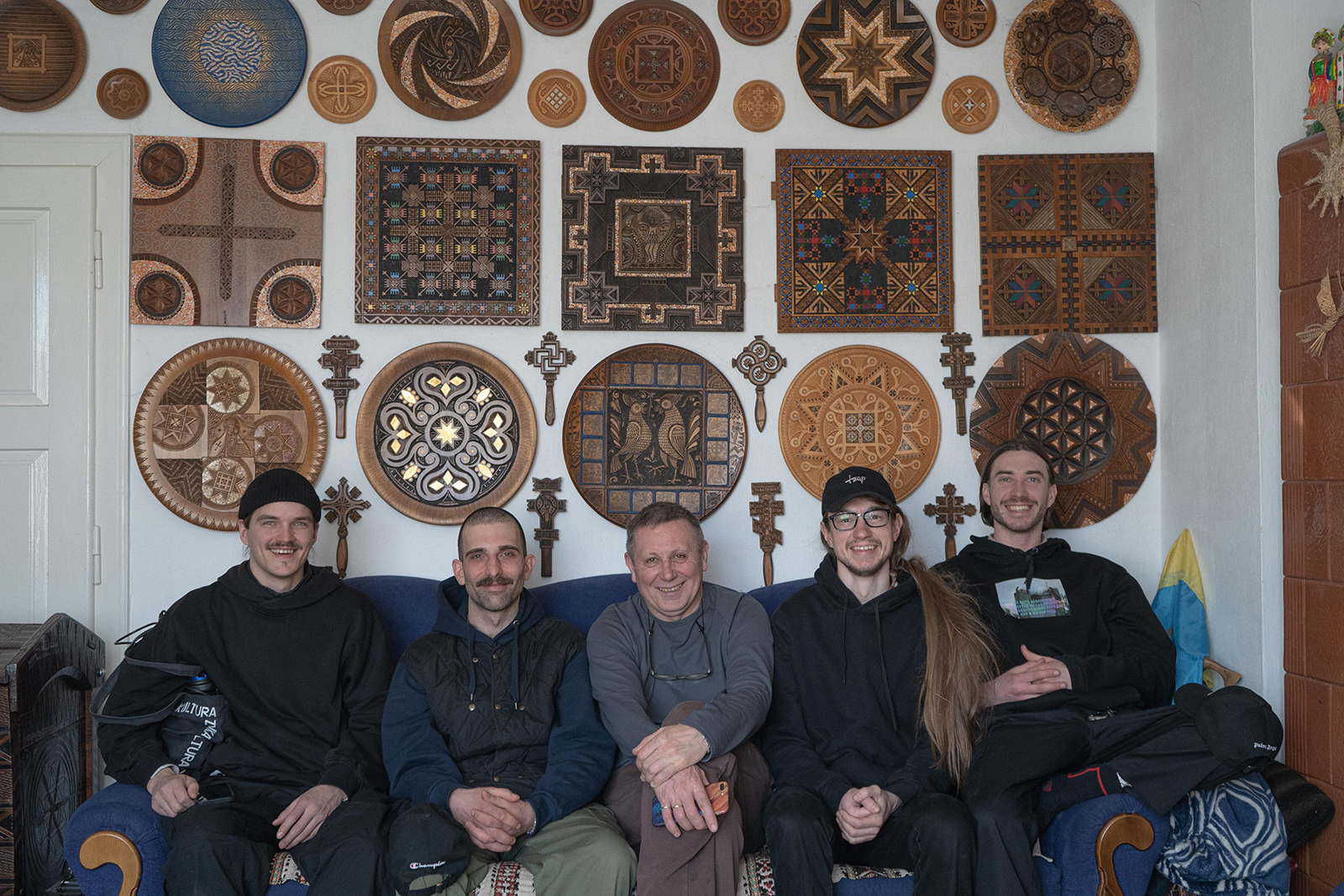
16. What kind of music do you associate Kyiv with?
In the 15 years I've been in Kyiv, it's been very different. It's changed. This is a fantastic opportunity for music to absorb various episodes of life and emotions. Kyiv 5-7 years ago sounded to me like the band Bichkraft. And 10 years ago, when I was being inspired by the local hardcore community, Kyiv sounded just like the music of those times. Now, it's the music of many of our residents because I've been doing this for almost 2 years. It reflects episodes of life that took on a musical form. At the same time, it is a language that reflects the city's spirit.
17. For you, personally, is Kyiv a live show or a mixtape? More of a vinyl or a cassette?
100% live. 100% vinyl.
Text: Oleksandra Dyvnych
Translation: Tetiana Bronitska
